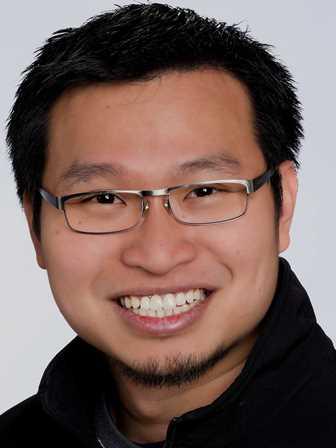Chemistry Seminar: Dr Heng Chooi
- Date: Fri, 16 Aug 2019, 1:00 pm - 2:00 pm
- Location: MacBeth Lecture Theatre - badger building
- Cost: FREE
- Contact: Dr Christopher Newton 8313 5308
- Email: christopher.newton@adelaide.edu.au

Presenter
Dr Heng Chooi
School of Molecular Sciences
The University of Western Australia
Abstract
Panning for gold in mould: genome mining of fungi for novel bioactive molecules and biocatalysts
A paradigm that has emerged for microbial natural product discovery in the genomics era is that we are far from exhausted the chemical diversity encoded in the genomes of the microorganisms, which we have isolated from microbial cultures in the laboratory. One of the main reason is that many of the natural product biosynthetic pathways are conditionally expressed in response to varying biotic and abiotic factors in the environment.
Inspired by this, we harness microbial biotic interactions to guide our genome mining effort for bioactive molecule discovery. Our lab is especially interested in molecules from pathogenic fungi involved in interactions with higher eukaryotic host, mainly plants and mammals, as these molecules could have potential agricultural and pharmaceutical applications.
Our approach is to use transcriptomics to prioritise biosynthetic gene clusters that are expressed during fungal host infection and couple that with synthetic biology tools that enabled specific pathway activation and/or pathway reconstruction in heterologous expression system. Using such strategy on a wheat fungal pathogen, we have discovered a number of phytotoxic natural products previously not known to be produced by the fungus, some of which we have demonstrated to be important for its virulence.
The second half of the talk will focus on the biosynthetic enzymes involved in generating the vast chemical diversity we observed in fungi. Fungal secondary metabolite pathways are a great source of such enzymes that perform complex chemical transformations and they have potential applications as biocatalysts for chemical synthesis.
Our group is particularly interested in biosynthetic enzymes from the pathways we discovered that are involved in templated or programmed synthesis (polyketide synthases, nonribosomal peptide synthethases), carbocation rearrangements (terpene synthases), oxidative coupling and rearrangements, halogenations and pericyclic reactions (e.g. Diels-alderases). Here, I will focus on the recent discovery and advancement of stereo-and regio-specific oxidative coupling enzymes as well as an intramolecular aldolase in our lab.
